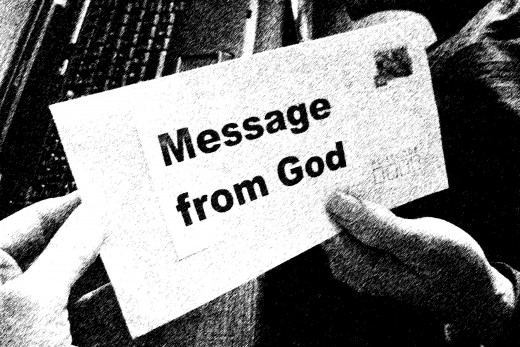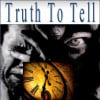The Powerful Proof of Biblical Prophecy

Sometimes we learn things that disturb us. Things that confront our convictions with “truths” opposite to those treasured. Concerned, we anxiously seek a defence or answer. Finding none and faced with unwelcome ambiguity, we panic.
As a younger man, my childish arrogance and naivety sheltered me. I was prone to resting upon my own reasoning, or that of my mentors. Older now, the umbrella of that vanity is a tattered thing; its conceited shade far less comforting. Mentors also have fallen by the wayside. Now when I don’t know, I am quicker to admit it, less quick to trust those that claim they do and better able to endure the unease of my ignorance.
Today there are far fewer things I boldly declare as unsinkable fact; even about myself.
Many “truth” convictions are now well settled into the silt of questionable opinion; waiting there for more information, experience, or wisdom to float them again. Others have long since sunk as wrecks; gone for good I think.

‘Fact’, it seems, often proves but fictions façade
However, though more than a few of my “certainties” have been abandoned to shipwreck [don’t you love all this seafaring metaphor], others have proven unsinkable – to me at least; though oft battered against others logic and the many "proofs" to the contrary, still they float about.
God is one such conviction, the Bible another, and Jesus a glorious third.
Nevertheless, when the Son of Man comes, will he really find faith on the earth?
— JesusHow, in the face of the mounting passionate (and growingly hostile) opposition, can I still maintain such convictions? After all, much of the mountain against my faith is scientifically founded, and therefore (I’m told), irrefutable. Is it simply my stubbornness? Blindness? Wishful thinking?
Is there anything objectively concrete in this thing called biblical faith? Or is it purely subjective bias; learnt or otherwise?
I wonder, as time passes and mans current arrogance dissolves around him, will there be anything left of faith; in God, the bible or Jesus?
In part, this is one purpose of this hub, and those to follow: to present good reason to keep the faith, or embrace it if you haven't already.
Dynamic Convictions
Where do you currently stand in regards spiritual faith?
The Powerful Proof of Prophecy. Part 1
A Premise:
It is reasonable to assume that a purposeful God would have a will or plan for mankind and would reveal such in some tangible way; not necessarily uncomplicated or undemanding, but observable & discernible?
Further, we could assume that such revelation would cater to the sceptic and not just the credulous. In other words, we could decide that it was from God based on the evidence.
In the Absence of Evidence
Not all decisions are equal, those of greater significance requiring weightier evidence in response to the questions asked; for example:
- Will we be able to manage having another child?
- What will the weather be like in the weekend?
- Which insurance policy offers flood cover?
- Who is the best candidate to employ?
- How do I know if the Bible is true?
Human gullibility aside, in the absence of good evidence we are naturally less willing to make a decision of significance.
This is sensible. After all, poorly informed decisions often result in wasted time and effort, are costly, or can even end in harm to us or those we love.
Evidence-based decisions, then, are a bedrock of responsible behaviour.
- Evidence-based Decision Making in Critical Care Medicine
To provide tools that promote evidence-based decision making in intensive care.
That said, the pursuit becomes: Where to find this evidence.
To what or whom do we turn?
Knowledge Empowers
Each of us appreciates this truth, the more-so as we age. However, it is acquiring quality knowledge that frequently proves the problem. Therefore, we turn to the "Experts"; surely a reliable source for the evidence we seek.
In fact, so strong is the impulse to trust these experts, that many unscrupulous devices are employed to exploit this potential "weakness"; as exemplified by the advertising world, which mines this fault-line for a living.
However, to re-emphasise, though falling prey to manipulative advertising may be relatively harmless, some questions require greater degrees of irrefutable evidence. The evidence upon which we can confidently base our decisions because failing to do so would result in serious consequence.
Again, for example:
- As a Juror, is there reasonable doubt as to the defendant's guilt?
- Which treatment is most likely to cure my cancer?
- Is that person safe to leave with my children?
- Is Jesus the only way to God?
The Irrefutable Evidence of His Creation
The bible declares, 'For since the creation of the world God’s invisible qualities—his eternal power and divine nature—have been clearly seen, being understood from what has been made, so that people are without excuse' (Romans 1:20)

This passage [and its fuller context] is straightforward enough. God has displayed very clear evidence of his existence, the creation also being an undeniable signature of his power and divinity; such that those refusing to acknowledge him are without reasonable defence.
However, it must be accepted that jumping from an evidence-based acknowledgement of Gods existence and majesty to a specific understanding of his purpose and will, requires more than can be attained from simply gazing about the creation; for this level of understanding, we need something more explicit from God.
And there be the problem. No one can deny that there are many in the world claiming to be proprietors of 'Gods Revealed Will' [The "experts"]. And this adds to the conundrum, the very reason we become sceptical regarding such claims; there are just so many to choose from. Like with advertising propaganda, how can we know which, if any, is true?
Well, maybe we can look at the strength of the evidence. And of this evidence, few are as powerful a testament of credibility than predictive prophecy.
What is Prophecy?
Prophecy has become a muddled word in modern times, diluted in the mind of many in regards its power to prove anything. After all, the plethora of those in our society claiming to know your future is everywhere apparent; clairvoyants, astrologists, psychics, tarot readers, numerologists, palm readers and horoscopes; etc.
On top of these we also have noted secular historical figures who, some claim, foretold things; e.g. Nostradamus, Edgar Cayce, Jeane Dixon.
Therefore, we conclude, what's the big deal? Does it prove anything? Is there a difference between Biblical prophecy and all the other claims?

Biblical Prophecy
One of the key differences of biblical prophecy is the claimed source of the prophetic power, I.e.: God.
Biblical Prophecy is a process by which message(s) communicated to a prophet from God, are then communicated to others by this prophet.
Essentially, when God communicates through a person to others, that person is said to prophesy.
Therefore, it is important to note that 'prophecy' does not necessarily involve the predicting of future events. However, in the scope of this series of hubs, we will be addressing prophecy that very clearly foretells of events that are to occur after the prophet spoke them.
Another key difference is the yardstick by which a legitimate prophecy was identified. The measurement was a simple one: the prophecy had to become true.
And it is here we can clearly delineate between biblical and all other "prophets"; and we will return to this point later.
If what a prophet proclaims in the name of the LORD does not take place or come true, that is a message the LORD has not spoken. That prophet has spoken presumptuously. Do not be afraid of him.
— The Bible - Deut 18:22The Litmus Test
We've all seen movie's in which characters prove they are time travellers by predicting something before it happens. This convinces the other characters because there are few feasible possibilities that can adequately explain the foretelling a future event.
Likewise, biblical predictive prophecies, revealing a foreknowledge of events, stand as proof that something outside of nature, as we know it, is at work, something supernatural.
In Part 2 (currently a work in progress) and following, we will look into a special area of biblical prophecy referred to as Messianic, and more closely compare biblical and non-biblical prophecy. Hopefully, by the end, we'll see where the greater evidence exists for us to put our faith in.
This content is accurate and true to the best of the author’s knowledge and is not meant to substitute for formal and individualized advice from a qualified professional.
© 2011 Richard Parr








